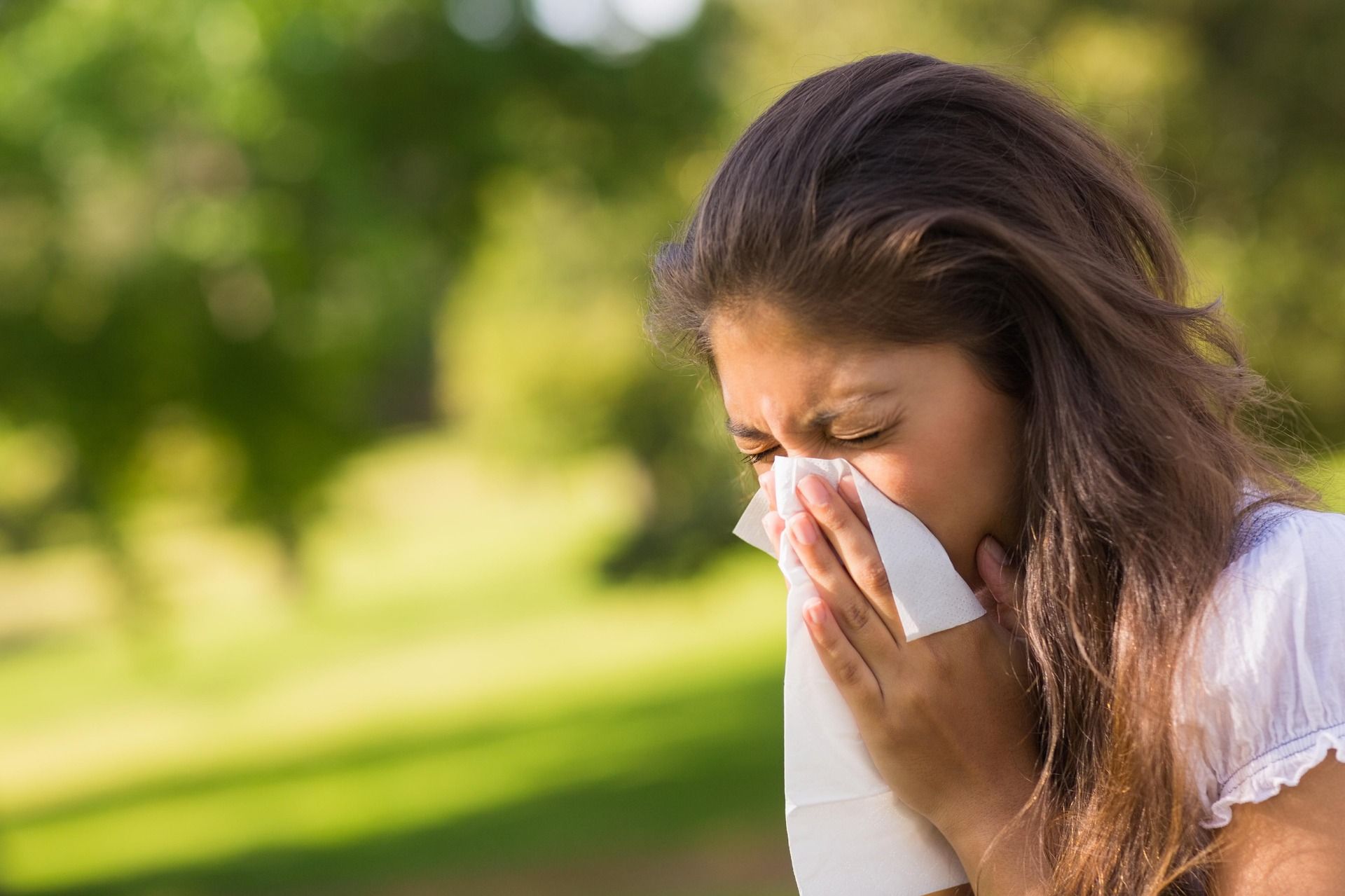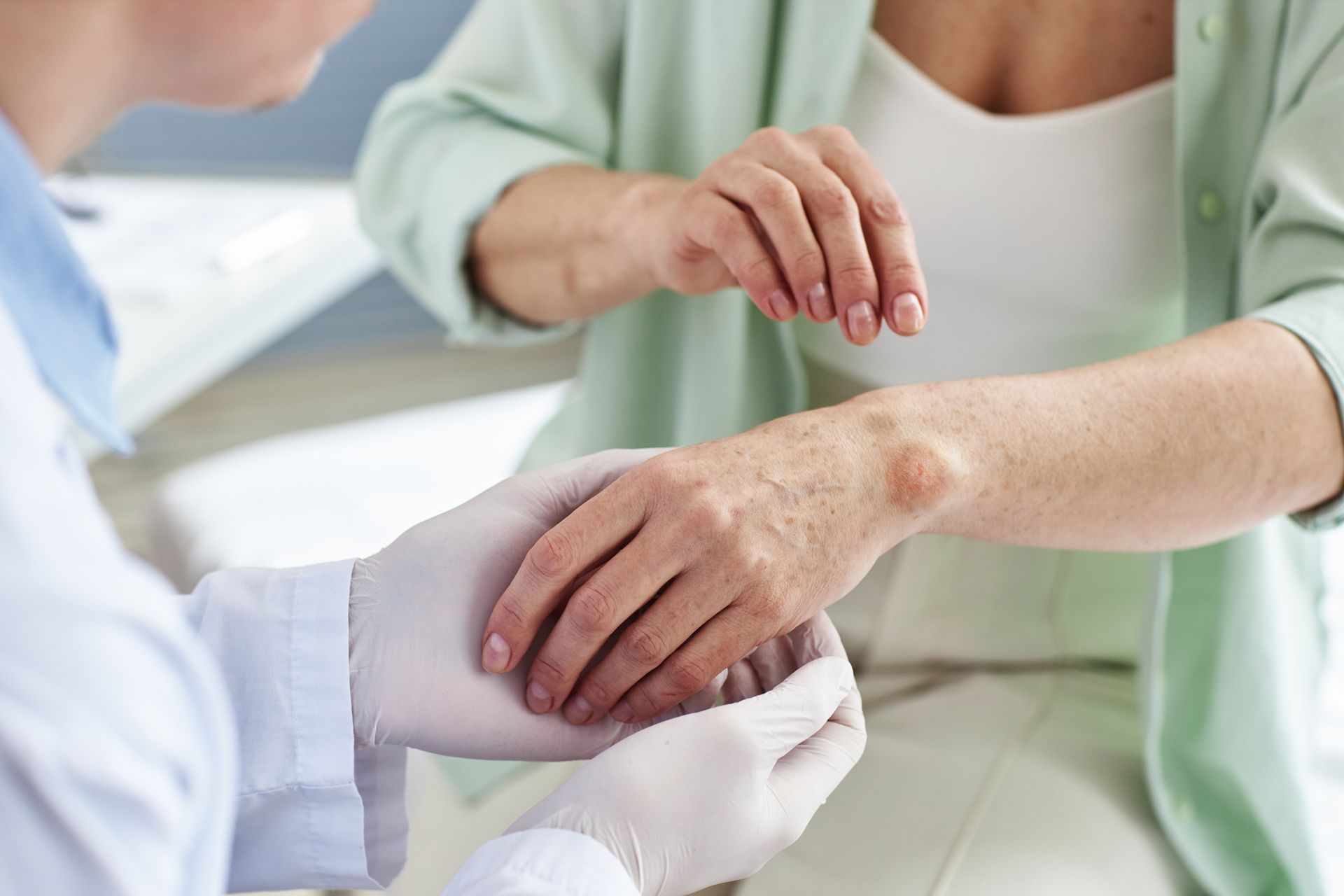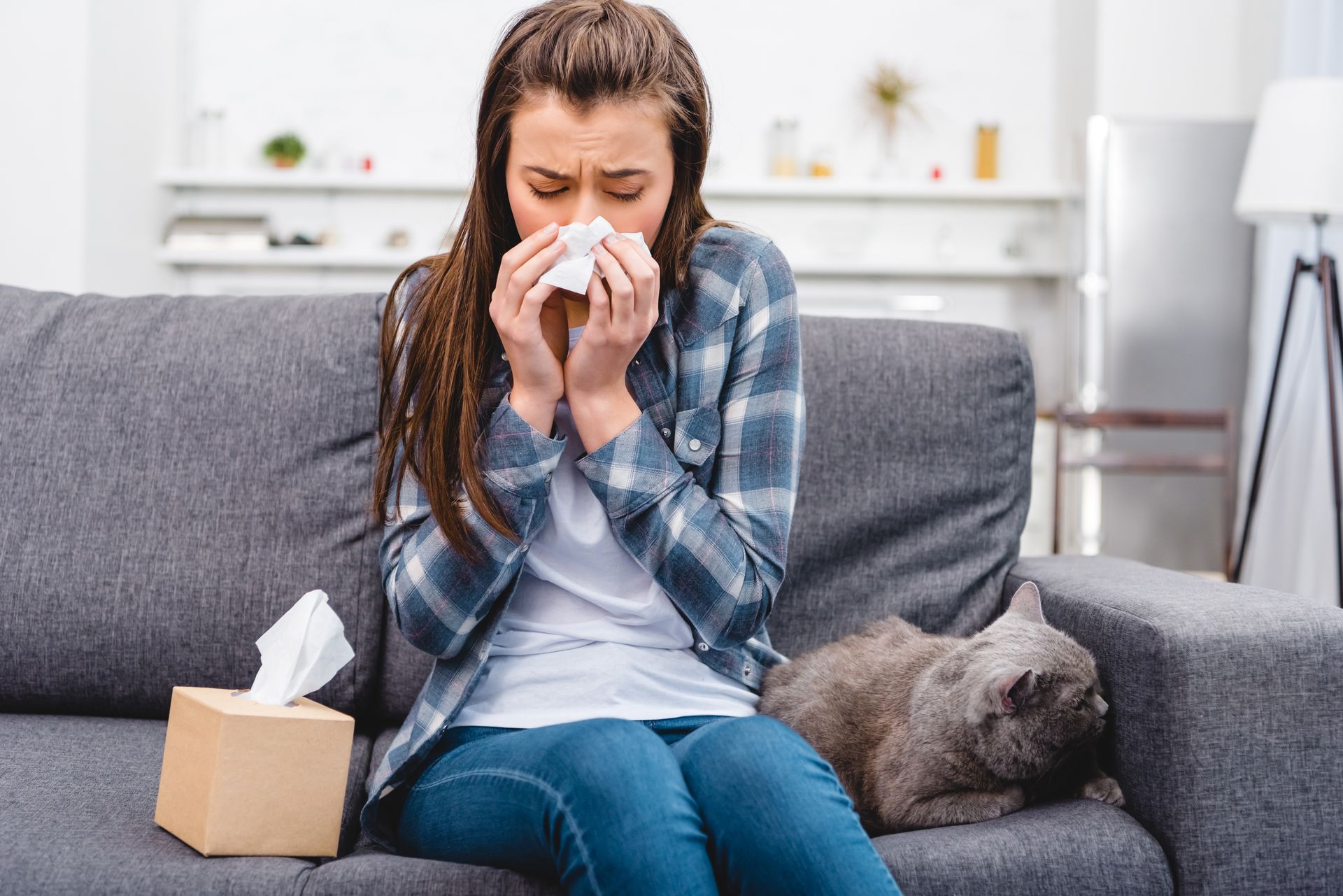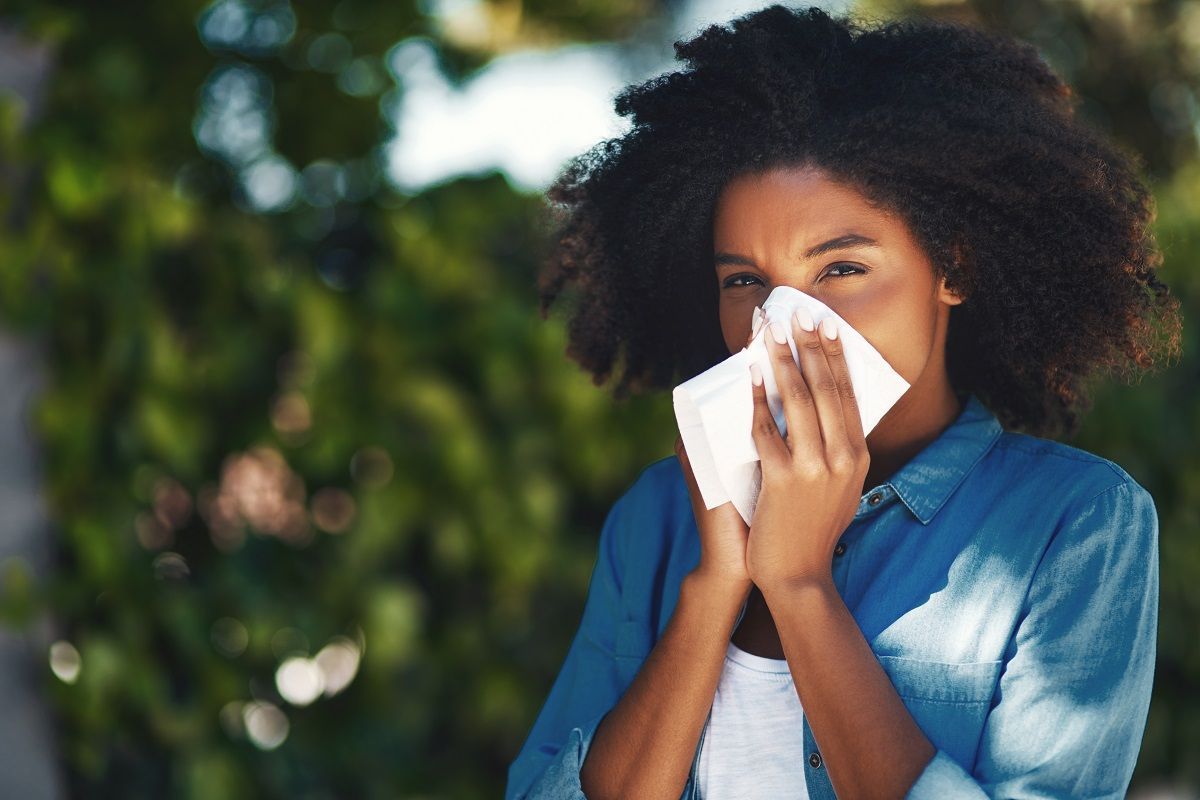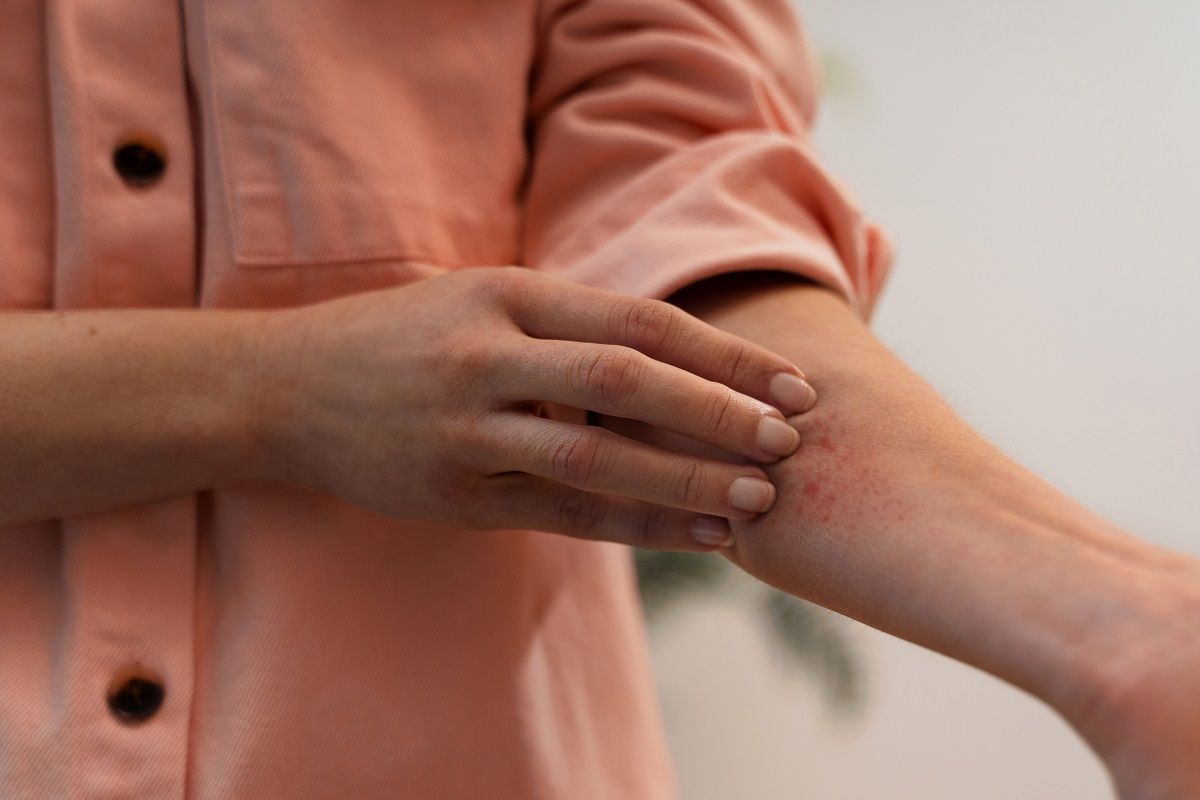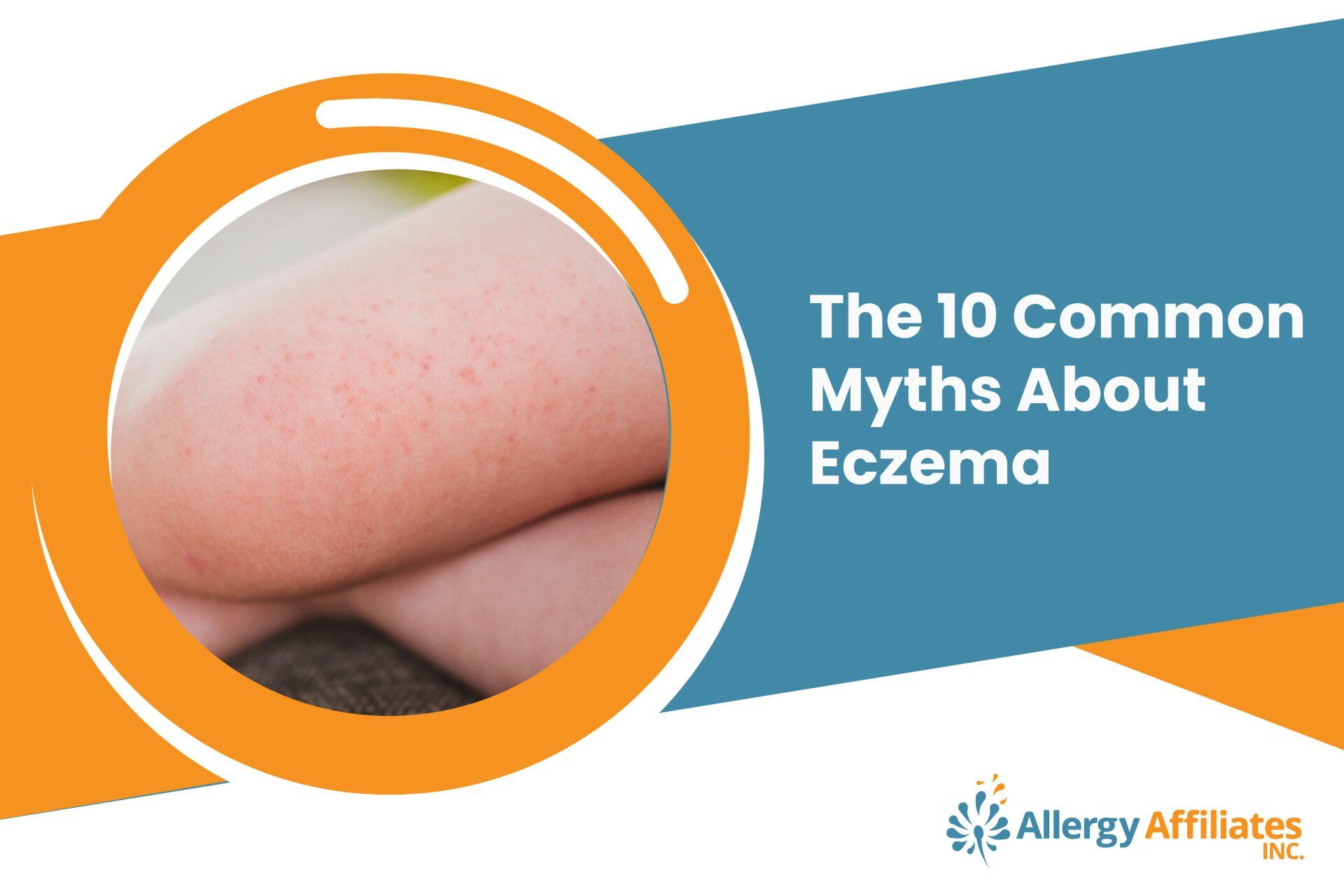
People often have misconceptions about eczema, which is not surprising. After all, it's an incredibly common medical condition, affecting 31.6 million Americans. There are many myths about what causes eczema or how to treat it. To help clear some of the confusion about this condition, we've compiled a list of the common myths about eczema and the truth behind them.
What is Eczema?
Known as common dermatitis, atopic dermatitis or eczema, this condition causes the skin to become inflamed, red, itchy, and dry. The condition may affect any part of the body but usually appears on the hands, feet, ankles, wrists, neck, upper chest, and eyelids.
Patients with eczema may also have scaly skin that can cause cracking and even bleeding. Blisters can form on the skin and break in severe cases, increasing irritation and discomfort. The condition is often quite uncomfortable, making it difficult to sleep or perform everyday tasks.
The root cause of eczema isn't known; however, it may result from a combination of factors affecting the body's ability to retain moisture and defend itself against irritants.
These Factors include:
- Environmental factors
- Dry skin
- An abnormal skin barrier that allows irritants and allergens to penetrate the skin
- An overactive immune system
- Genetics (a tendency toward eczema can run in families).
The Truth About Eczema: Debunking the Myths
Knowing the facts will help you better treat your condition. Below are ten of the most common myths about eczema and the truth behind them.
Myth #1: Eczema is contagious
Fact: Many people are asking: Is eczema contagious or spreadable? The answer is no. A virus does not cause the condition, so there's no way you can catch it from another person by touching or coming into contact with them. The condition appears to be hereditary in certain families, and people with asthma or seasonal allergies tend to be more susceptible to eczema.
Myth #2: Eczema only occurs in children
Fact: While most people who have eczema develop it in childhood, adults can get eczema too! In fact, about half of the kids with eczema will continue to have symptoms when they grow up. As you approach adulthood, you may begin to experience fewer flares of eczema. However, this does not guarantee that the condition will completely disappear.
Myth #3: Eczema is caused by allergies
Fact: Eczema is a skin condition, not an allergy. However, allergies to certain foods can trigger eczema. For example, eczema might flare up after eating dairy products or peanuts. Various other factors may cause eczema flares, including detergents, fragrances, sweat, and irritation from clothing that rubs against the skin.
Myth #4: Stress Causes Eczema
Fact: People with eczema can experience a flare-up when under stress, but stress does not cause the disease itself. Many people with eczema do not report any relationship between emotions and symptom outbreaks. While some people with anxiety, stress, and other mental health conditions do experience eczema flare-ups.
Myth #5: Poor hygiene causes eczema
Fact: Poor hygiene does not cause eczema. Dirt and sweat may aggravate eczema, but these factors do not cause it. In fact, harsh soaps and detergents can irritate your skin and make eczema worse.
When treating mild cases of eczema, washing with a gentle cleanser and moisturizing daily may be enough to keep symptoms at bay. For moderate to severe cases of eczema, your doctor may recommend using medicated shampoo and body regularly wash or as needed to ease the symptoms.
Myth #6: Eczema can be cured
Fact: There is no cure for eczema, but there are ways to manage symptoms. To manage symptoms, you need to identify what triggers your eczema, avoid these triggers and use specific treatments recommended by your doctor to soothe itchy, inflamed skin and prevent flare-ups.
Myth #7: Eczema is just dry skin
Fact: Dry skin is a common eczema symptom, but dry skin does not cause eczema itself. It's more than that. Instead, the condition results from a malfunction in the immune system and other factors that cause inflammation, itching, and other symptoms.
Myth #8: Eczema will clear up by itself
Fact: Unfortunately, this is not the case. Most cases of eczema are chronic, meaning that they can reappear anytime. Treatment can bring the condition under control. With careful attention to triggers, allergens, and lifestyle factors, you may be able to minimize or prevent flare-ups.
Myth #9: Bathing every day worsens eczema
Fact: While it's true that people with eczema should avoid hot showers and use mild soaps, bathing itself won't make eczema worse. In fact, daily lukewarm baths are recommended for people who have this skin condition. Bathing helps hydrate the skin and remove dead cells so they don't build up and clog pores. After bathing, you should use a moisturizer on damp skin right away. This step will help lock in moisture.
Myth #10: People with eczema can't go swimming
Fact: Swimming is an excellent exercise that people with eczema can also enjoy. However, some swimming pools have very high chlorine levels, which may irritate your skin further. But this doesn't mean you have to stop swimming altogether. Just remember to take some extra precautions to protect your skin. If you have severe eczema, you may prefer to avoid these pools until your skin has cleared up.
Tips to Help Alleviate Eczema
There is currently no cure for eczema. However, there are steps you can take to prevent flare-ups and control symptoms. Here are some tips.
Identify and avoid triggers
The initial step in managing eczema is to steer clear of the things that cause it to flare up in the first place. If you are unsure what triggers you have, an allergist or immunologist can help you figure it out. Common triggers include
- certain soaps, detergents, lotions, and fragrances
- stress
- seasonal changes
- dry climates
- sweating
- hot water
- wool or synthetic fabrics.
- dairy or egg
Use gentle products on your skin
If certain soaps or detergents cause irritation, stop using them. Soaps, detergents, and harsh chemicals can aggravate eczema symptoms, so look for products labeled "fragrance-free" or "hypoallergenic." Try washing with a mild cleanser instead of soap to help moisturize the skin as you cleanse it. Fragrance-free laundry detergent is also recommended for the clothing worn against your skin.
Moisturize daily
Keeping your skin moisturized will help reduce itching as it acts as a protective barrier between the skin and the irritants. The doctor may recommend specific creams or lotions to use on areas of your body prone to eczema, but in a pinch, you can use petroleum jelly or coconut oil.
Avoid bathing or showering with hot water
If water is too hot, it will strip the skin's oil, leading to itching and dry skin. Take short cool or lukewarm showers instead, or even baths if that is more comfortable. After bathing, pat yourself dry — don't rub! Then moisturize.
Make sure clothes are soft and comfortable
Certain fabrics can worsen eczema, so choosing clothes that don't irritate your skin is essential. Keep away from scratchy materials such as wool and coarse fabrics such as corduroy or burlap. Opt for soft, non-irritating, and breathable fabrics — think cotton or silk.
Avoid scratching if possible.
Scratching causes the skin to break, leaving it vulnerable to infection or further irritation. Try putting something cool on your skin if it starts to itch, like ice cubes wrapped in cloth. You can also pat dry the affected area with a clean towel and apply an ointment or cream. These steps can help soothe the itch.
Apply a moisturizer after bathing or showering immediately
Immediately following a shower or a bath, apply a generous layer of skin moisturizer within three minutes while the skin is wet. This method helps seal in moisture, so your skin doesn't dry out too quickly. Dry skin will be more prone to inflamed patches if you apply moisturizer later.
Manage stress levels
Stress can trigger the symptoms of eczema. A study from Harvard University found that stress leads to increased itching in individuals with eczema. Therefore, managing your stress can help reduce the occurrence of flare-ups. Take part in a hobby or activity that will help you relax, such as walking, listening to music, or practicing yoga.
Reduce the Impact of Eczema
Each person has their own type of eczema, and it varies in severity, so it's important to speak with your doctor about what kind of treatment would work for you. We know that eczema can be debilitating, but at Allergy Affiliates, we've helped many patients find relief and help manage their condition. We aim to help you reduce the frequency and severity of their flare-ups and reduce their negative impact on your life. Call 941-792-4151 or schedule an appointment online with Dr. Sabharwal today!

